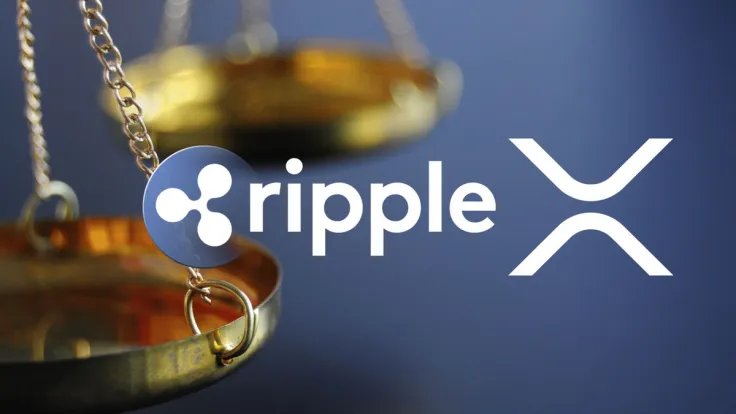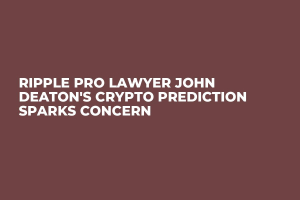
Disclaimer: The opinions expressed by our writers are their own and do not represent the views of U.Today. The financial and market information provided on U.Today is intended for informational purposes only. U.Today is not liable for any financial losses incurred while trading cryptocurrencies. Conduct your own research by contacting financial experts before making any investment decisions. We believe that all content is accurate as of the date of publication, but certain offers mentioned may no longer be available.
A motion for an amicus brief in the Zakinov v. Ripple case has been filed by the CryptoLaw founder and XRP holders' attorney John E. Deaton.
John Deaton, five other XRP holders, and SpendtheBits Inc., a company that has integrated XRPL, filed the motion on behalf of 75,890 XRP holders from the U.S. and 143 other countries.
#XRPCommunity #XRP @JohnEDeaton1 has filed a Motion to File an Amicus Brief in Zakinov v. Ripple in California.https://t.co/VJuZ6o5mA0?from=article-links
— James K. Filan 🇺🇸🇮🇪 (@FilanLaw) February 10, 2023
As stated, the plaintiff opposes the XRP holders' request to file an amicus brief, while the defendant (Ripple) consents.
Deaton argues that the plaintiff's opposition demonstrates that the interests of over 75,000 XRP holders will not be pursued, or protected unless the court grants leave to file the proposed amicus brief.
Deaton makes a compelling case that XRP holders have a unique viewpoint that differs significantly from the parties.
He adds that the lead plaintiff purchased XRP between Jan. 1 and 16, 2018, and sold that XRP between Jan. 9 and 17, 2018.
This implied that he only owned XRP for about two weeks more than five years ago. Deaton continued, "The proposed amici and the other 75,890 XRP holders presently own XRP."
He further explains that, given the technological advancements related to XRPL and the use cases for XRP, 2018's XRP is not the same as that of 2023. Also, many different XRP holders acquired XRP for many different reasons — reasons unknown (or ignored) by the plaintiff.
Deaton cited the fact that several XRP holders use XRP as a substitute for fiat and as a form of currency to buy everyday items at various locations.
He gives a good reason why the court will benefit from XRP holders' participation — to clear up some misconceptions by the plaintiff.
"Because Plaintiff only owned XRP for two weeks five years ago, he wrongly asserts that XRP is not decentralized like Bitcoin," Deaton stated.
What happened
In the Zakinov v. Ripple case, the plaintiffs allege that Ripple sold XRP as an unregistered security and are now requesting the court certify a class of all XRP holders who purchased the token, including those who hold XRP and those who sold at a loss.
The proposed class would include XRP holders worldwide, including the 75,890 XRP holders who disagree with the plaintiffs in the Zakinov case and say XRP is not a security.
John Deaton argues that the court should not certify the class because the majority of XRP holders globally disagree with the claim that the cryptocurrency is an unregistered security, as opposed to the small number in the Zakinov case.

 Vladislav Sopov
Vladislav Sopov Dan Burgin
Dan Burgin